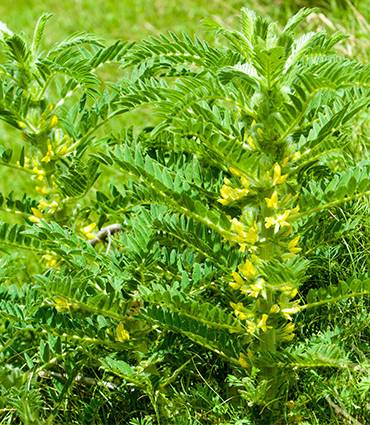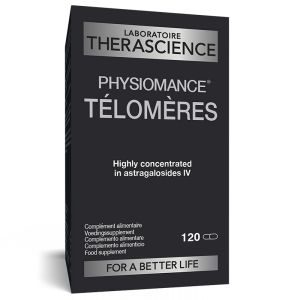Astragale

Latin name :
Astragalus membranaceus L.
Common Name :
Astragalus, Tragant
Family :
Fabaceae
Origin :
Asia
Part of the plant used :
Root
Description
Originally from Mongolia, astragalus is a perennial plant that grows in the forests of China, Korea and Japan. Harvested between the ages of 4 and 6, astragalus is then dried. The root is used in phytotherapy as a powder or cut into thin strips to be consumed as a tea. The plant can also be eaten as a soup or broth. The root of astragalus is known in traditional Chinese medicine for its stimulating powers that boost the physical energy of the elderly.
Astragalus contains saponins, including astragalosides, among which is astragaloside IV, a molecule that is particularly studied by researchers because it is said to have anti-ageing properties. Astragalus is also composed of flavonoids with antioxidant properties and immunostimulant polysaccharides.
A veritable panacea, astragalus has many health benefits, particularly thanks to its anti-inflammatory and anti-allergic properties. Astragalus is said to have the power to fight against cell ageing. Indeed, this plant activates telomerases, enzymes that allow telomeres, DNA sequences located at the end of chromosomes, to be lengthened. With age, telomeres shorten, causing cell death. Astragalus therefore helps to counteract this process. The flavonoids contained in astragalus complement this action because their antioxidant power enables the free radicals responsible for oxidative stress and cell ageing to be trapped.
This plant is also known for its beneficial effects on the immune system. It stimulates the immune system, particularly when it becomes dysfunctional and loses its effectiveness as we age (immunosenescence). Similarly, the numerous polysaccharides contained in astragalus increase the body's immune response, which gives the plant antiviral properties that prevent viruses from integrating into the body's cells.
Furthermore, the anti-ageing effect of this plant is also established at the level of the cardiovascular system thanks to astragaloside IV, which contributes to preserving heart function. Astragalus is also involved in protecting the kidneys thanks to its anti-inflammatory and antioxidant effect.
Particularly recommended in cases of chronic fatigue, astragalus is sometimes classified as an adaptogenic plant, a plant species that increases the body's capacity to adapt to stress.
The benefits
Astragalus is a tonic plant considered as an adaptogen. Traditionally known for its stimulating activities, astragalus helps to recover physical and mental well-being.
In addition, astragalus has an antioxidant and anti-ageing effect that protects our body against free radicals. This plant is a help in case of insufficient food intake or increased nutrients.
Astragalus contributes to the maintenance of a healthy vascular system, supports the natural defences and contributes to the mobility and flexibility of the joints. It promotes resistance during the menstrual cycle and helps to soothe the discomforts of the menopause.
Astragalus contributes to the physiological resistance of the body in case of severe environmental conditions and stimulates the mobility of spermatozoa in men.
Scientific publications
Astragalus is the subject of over 1,520 scientific publications.
The selection of our active ingredients is constantly guided by numerous scientific publications, based on randomised, double-blind, placebo-controlled clinical studies in humans, guaranteeing real scientific value. The doctors, pharmacists and engineers at Laboratoire THERASCIENCE have selected some of these publications for you.
- Latour E, Arlet J, Latour EE, et al. Standardized astragalus extract for attenuation of the immunosuppression induced by strenuous physical exercise: randomized controlled trial. J Int Soc Sports Nutr. 2021;18(1):57
- Matkovic, Zinka et al. “Efficacy and safety of Astragalus membranaceus in the treatment of patients with seasonal allergic rhinitis.” Phytotherapy research : PTR vol. 24,2 (2010): 175-81. doi:10.1002/ptr.2877
Our products based on Astragale
-
€130.90
-
€130.90
-
€15.90













